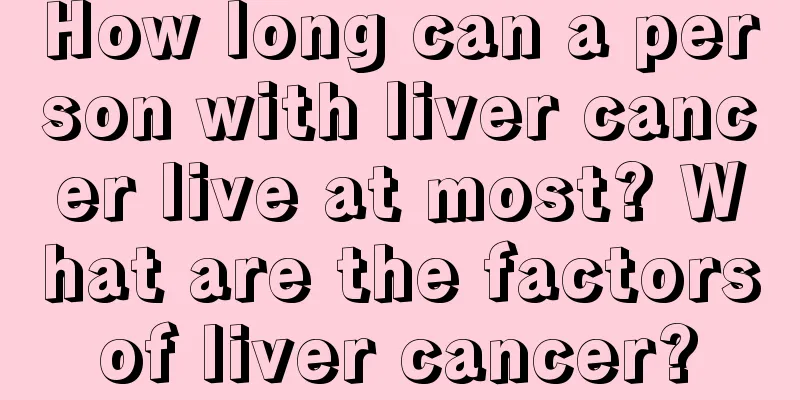Does renal hamartoma require surgery? Introduction to non-surgical treatments for renal hamartoma

|
Renal hamartomas are mostly benign lesions originating from the renal cortex, which progress slowly and rarely metastasize. The tumor is mainly composed of blood vessels, smooth muscle and adipose tissue, of which adipose tissue can account for more than 80% of the entire tumor. Renal hamartomas generally have no obvious symptoms and are often discovered through examinations. Surgical treatment is not necessary for small renal hamartomas without obvious symptoms. Common non-surgical treatments include regular observation, arterial interventional embolization, radiofrequency ablation, etc. Renal hamartomas are mostly benign lesions originating from the renal cortex. The specific cause is unclear, the lesions progress very slowly, and basically do not invade surrounding tissues or metastasize to distant sites. The tumor is mainly composed of blood vessels, smooth muscles and adipose tissue, of which adipose tissue can account for more than 80% of the entire tumor. Renal hamartomas generally have no obvious symptoms. If the tumor ruptures and bleeds, there may be low back pain with or without gross hematuria. So, does renal hamartoma have to be treated surgically? What are the non-surgical treatments for renal hamartomas? For renal hamartomas with a tumor diameter of less than 4 cm and no obvious symptoms, regular checkups can be performed, with a renal CT scan about every six months to monitor changes in the tumor. If there are no obvious changes in the tumor, regular observation can continue. If the tumor grows rapidly or ruptures and bleeds, surgical treatment is required. Before surgical treatment, the primary consideration should be to preserve renal function as much as possible. With the recent development of medicine, patients with tumors smaller than 4 cm with mild symptoms but stable vital signs who do not want to undergo surgery can also choose renal artery interventional embolization or radiofrequency ablation. The risks of these two methods are relatively small, with less trauma to the body, more definite efficacy after treatment, and a short recovery period after treatment, and can protect kidney function to the greatest extent. However, if arterial interventional embolization or radiofrequency ablation is ineffective, surgical treatment is the only option. For renal hamartomas with a diameter greater than 4 cm but no obvious symptoms, surgical treatment, arterial interventional embolization, or regular observation and treatment can be selected. However, as the tumor gradually grows, the possibility of spontaneous rupture and bleeding also increases, so surgical treatment is recommended for renal hamartomas of larger size. The above briefly introduces some indications for surgical and non-surgical treatment of renal hamartoma and the selection of non-surgical treatment methods. Smaller renal hamartomas can be observed regularly. If the tumor is significantly enlarged, surgical treatment is required. In recent years, arterial interventional embolization and radiofrequency ablation have also achieved good results. For patients diagnosed with renal hamartoma, it is best to go to the hospital for treatment under the guidance of a specialist. |
<<: What is the difference between renal hamartoma and renal cyst
>>: Does a 6cm renal hamartoma require surgery? How big a renal hamartoma requires surgery?
Recommend
Urine formation process
The most obvious activity of metabolism is excret...
Causes and elimination methods of bruised knees
Sometimes we may find a few bruises on our feet o...
What happens if you keep the air conditioner on all day?
With the rapid development of the economy, people...
How long can a person live with a pituitary tumor? How should a person with a pituitary tumor be treated?
How long can a person with a pituitary tumor live...
What are the symptoms of ovarian cancer? 4 symptoms of ovarian cancer
When ovarian cancer attacks, the patient's bo...
Is it better to steam in summer or in winter?
Sweat steaming is a health-preserving and leisure...
How to effectively treat habitual dislocation
Habitual dislocation can easily occur in some chi...
Can I drink overnight mineral water?
Water is an indispensable element for the human b...
How to avoid motion sickness?
When you go out, you often have to take a car, esp...
How long does it take to cook zongzi
When cooking rice dumplings, you must control the...
How to motivate employees
Life requires people to manage it better, and the...
Pay attention to the early manifestations of ovarian cancer
The ovaries are located deep in the pelvic cavity...
How to use hand mask?
People are very familiar with facial masks, and w...
How to quickly remove the smell and formaldehyde from furniture
When you decorate your house or buy new furniture...
What new treatments are there for liver cancer in recent years? How do patients with liver cancer choose treatment?
Liver cancer refers to a malignant tumor that occ...









